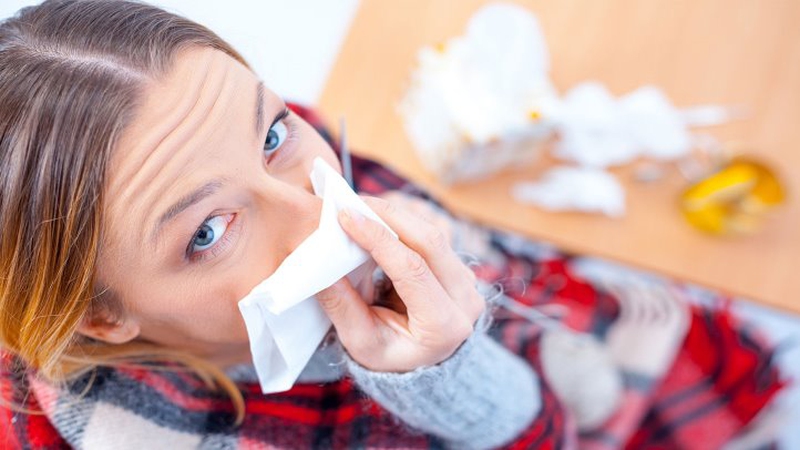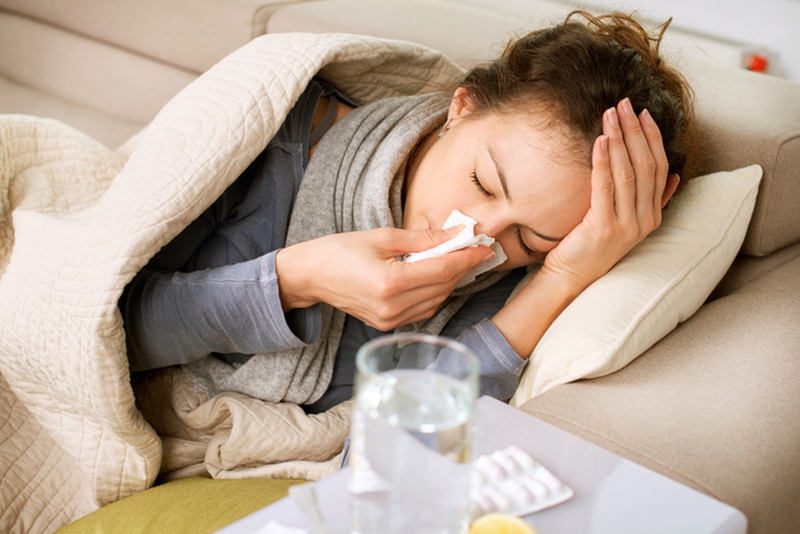The cold season is fast approaching.
While most people look forward to it since it’s “cuddle weather” and a time to wear some fancy leather jackets and fur boots, others are not too excited about it. The first thought that comes in people’s mind when they hear of cold season is that, “Oh, gosh! I have to endure those sneezing fits again!”
An interesting fact - each of us spends around five years of our lives feeling under the weather, accompanied by bouts of sneezing and coughing. Then have you ever wondered why do we sneeze or cough when we have a cold? This article will shed you some lights.

Why Do We Sneeze When We Have a Cold?
A sneeze is an involuntary, powerful explosion of air from your lungs through your nose and mouth. Sneezing is our body’s natural reaction to get rid of irritants from your throats or nose like dust or pollen.
What’s responsible for our sneezing fit?
Sneezing is a result when your trigeminal nerve – a nerve that is connected to the “sneeze center” of the brainstem and prompts you to sneeze – is inflamed. Whilst sneezing can be an early symptom of allergy or cold, sneezing has a positive purpose on our body. It’s our body’s natural way of expelling viruses that infects your respiratory tract tissues.
On the other hand though, sneezing is also responsible for spreading disease. It creates aerosol droplets which contain viruses and can be inhaled and passed to other individuals. Guess how many droplets of aerosol can a single sneeze produce? 40,000 droplets! Make sure to stop spreading those germs and viruses by covering your mouth and nose the next time you sneeze.
When to worry:
Majority of the time, there’s nothing to worry about sneezing, however you should talk to your doctor if it persists or if it interferes with your life.
Home Remedies
You have known "why do we sneeze when we have a cold", although you know it's no big deal, having a bout of sneezing can be troublesome and socially embarrassing. Follow these home remedy tips to find relief from sneezing brought by cold.
Nasal flushing – Clear your nose and soften thick mucus by flushing your nasal passage. It can also relieve sneezing since you also clear irritants when nasal mucus is expelled. You can use ready-to-use nasal drops or you can also make your own salt and water solution at home.
Nasal strips – Use nasal strips to relieve nasal congestion and make you breathe easier when you have a cold. It also expels mucus from your clogged nasal passages, hence resulting to relief from a runny nose and sneezing.
Hot liquids, steam and mist – Hot liquids such as tea or broth loosen mucus so that you can easily expel it from your mouth and nose. Stem or humidified air also softens your nasal mucus and soothes your airways.
Natural remedies – Stop worrying about "why do we sneeze when we have a cold" anymore. These natural remedies will bring you relief in no time:
Peppermint oil – It has antibacterial properties that provide relief that is due to stuffy nose. Simply add five drops of peppermint oil on boiling water. Breathe in the steam from the boiling pot to clear your nasal passages.
Fennel tea – It has natural anti-viral properties that are effective in fighting any upper respiratory infection, including sneezing. To make your own fennel tea, add two teaspoons of crushed fennel seeds to boiling water. Soak it for 10-15 minutes. To reduce the frequency of your sneezing, drink two cups of fennel tea every day.
Chamomile tea – Because of its antihistamine properties, you will feel instant relief from sneezing caused by allergies. Add one teaspoon of dried chamomile flowers to a cup of boiling water. You can use honey to sweeten.
Garlic – Any upper respiratory infection will be relieved because of its natural antiviral and antibiotic properties. Aside from adding garlic to your diet, you can also crush 4-5 cloves into fine texture and inhale its fragrance.
Fenugreek seeds – It has antiviral property that soothes your mucous membrane which relieves irritation and sneezing. Add 2-3 teaspoons of fenugreek seed to boiling water.
Other Cold Symptoms Explained
Now that we know "why do we sneeze when we have a cold", what about the other symptoms of cold?
Chills and Fever – Chills which precedes a fever, is your body’s natural way of generating heat when it feels cold. You should seek medical assistance if it accompanies dizziness or shortness of breath, if you have more than 102 degrees temperature or if you have a persistent fever for the past 72 hours.
Sore Throat – This condition occurs when your throat is irritated and inflamed because of the mucus dripping into the back of your throat. Consult your doctor if it interferes with your breathing or swallowing of food.
Runny Nose – It’s your body’s natural reaction to expel the flu or cold viruses from your nasal passage. Talk to your doctor if your runny nose still persists after one week. You could have a bacterial sinus infection.
Sinus Pressure – Mucus may be trapped in your sinuses and congest your nasal passages. It can be a symptom of a bacterial infection, so call your doctor immediately if your fever is more than 102 degrees.
Cough – It’s a natural reflex of our body to clear your throat. It is triggered by excessive mucus and other irritants that are irritating the nerve endings of your respiratory tract. Seek medical help when you’re coughing up blood or discolored mucus and short of breath.
Swollen Glands – It’s a result when army of cells is produced by your lymph nodes to fight off viruses. Call your doctor if you still have swollen glands for several weeks. It could also be a sign of more serious illness such as lymphoma.
Body Ache – It’s a sign that your body is fighting off the infection by releasing chemicals to aid white blood cells in this battle. You may consult with your doctor if body pain has become incapacitating.
Though it’s quite troublesome if you have sneezing fit, it can be a good thing. It indicates that your body is performing its function in expelling viruses and other irritants. Be on top of your health by having a regular exercise and healthy diet.


View All Comments /Add Comment